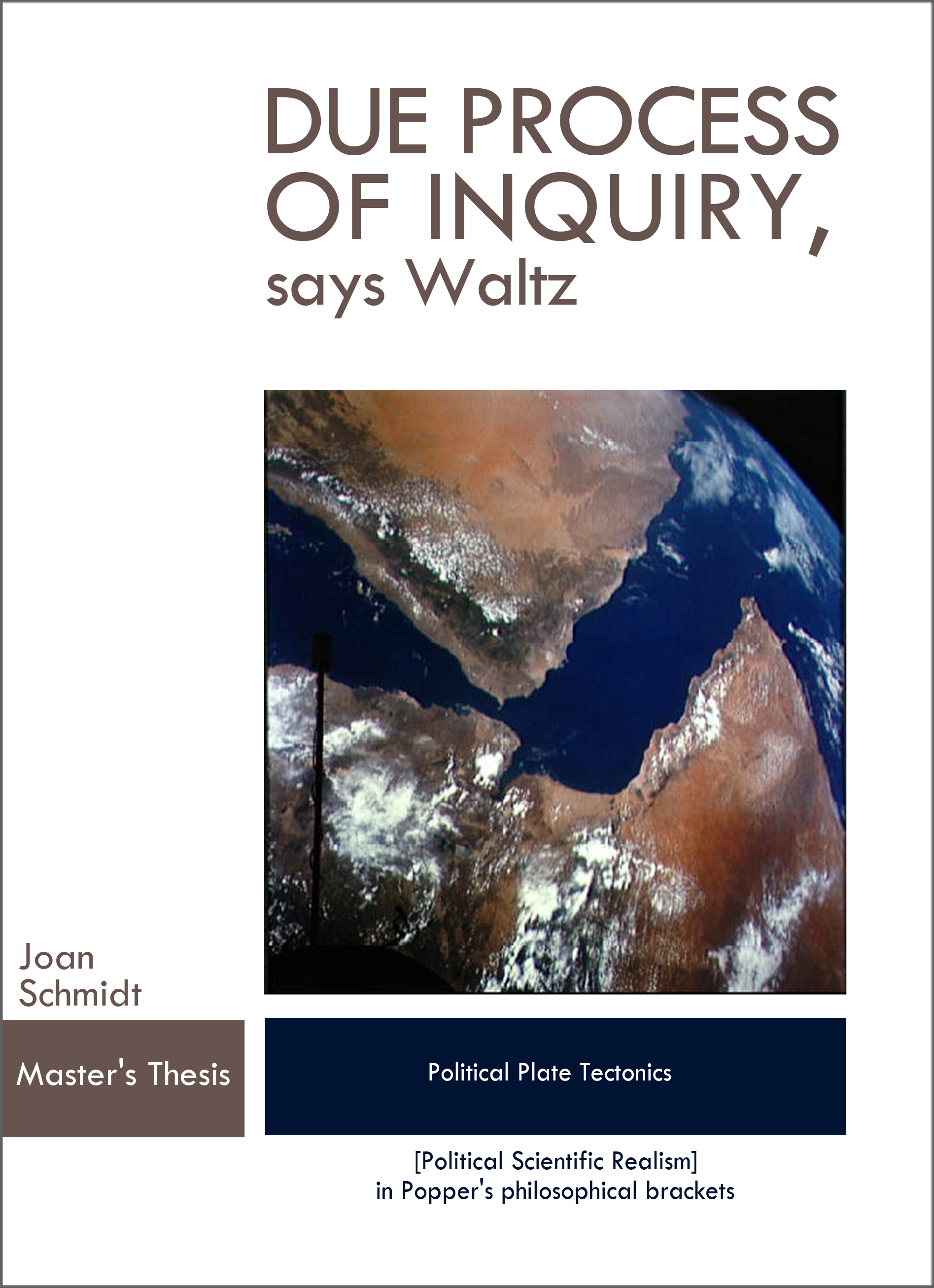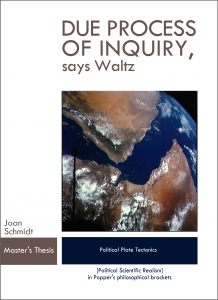Due Process of Inquiry, says Waltz
'Due Process of Inquiry, says Waltz' is a book about theory on political plate tectonics launched by Kenneth N. Waltz (1924 - 2013) in his very well-known book 'Theory of International Politics.' His work established as neo-realism.
Waltz’s core theory depicts in a tentative axiomatic system his chief postulate of the two co-existing political systems namely the complementarity of hierarchy and anarchy. Complementary in the way of Niels Bohr.
It is empirical theory that measures power in the political anarchy in polarity; judged on the standards of Sir Karl Popper. It is also theory that can frame logics of situation as they spring from the distributional structural dynamics.
To capture the fundamental logic of pole's behaviour Waltz imported the principle of survival motive and the notion of 'selection' from Darwinian theory. Natural selection is the empirical principle that bridges Darwinian theory with Popperian falsificationism and Waltzian structural political theory. Natural selection simply resembles falsification.
From the point of view of humanism, it is to be remembered that the Darwinian principle of survival and the mechanism of selection are no choices on the part of Darwin, Popper, Waltz, behaviourist scientists, or anybody else. It is no political preference. It is an empirical principle. It merely so happens in life.
However, what is a possible political preference is to rebel the naked conditions of human life. That is what politics is all about. Humanity is quite capable of taking measures so that happenings, states, and individuals need not succumb. Such is the choice. We cannot change the fact that if we do nothing humanity is left with a situation of live-and-let-die, so to speak. But we can in many respects enhance fitness. It just is in human life that happenings of human nurture prove sustainability and individuals survive while others do not. Some will say that the empirical principle needs to encounter the power of God that is capable of interfering with human life and occasionally do so; some will say that God will not take charge until the last Day of Judgment. Few will say that everything is determined by a God’s will that can be named fate; creation does not necessarily entail determination of human life and free will.
It seems safe to say at least this much; whether we favour the idea that the world we live in is indeterminate or favour ideas of some interference other than nature, humanity can do nothing better than to take action on the remaining of the empirical principle of survival and selection. Humanity may lose to nature and nurture or a God’s will. However, the mere fact that losing is possible is no reason not to fight for civilized success and best fitness in everything we do - not least politics. The Darwinian perspective is much wider than merely assessing particular actor’s choice of what to adopt; it is a valuation system – that is to say a system of adaptation. But it is in politics all about that which is man-made. Controversy is bound to be on that which is valued. However, this is another issue – an issue of judgment proper, not least on the part of science evaluating, say, political lessons.

Del på:
Due Process of Inquiry, says Waltz – se omtalen på LinkedIN om neorealisme i en ny videnskabsteoretisk ramme.


Besøg mig på: